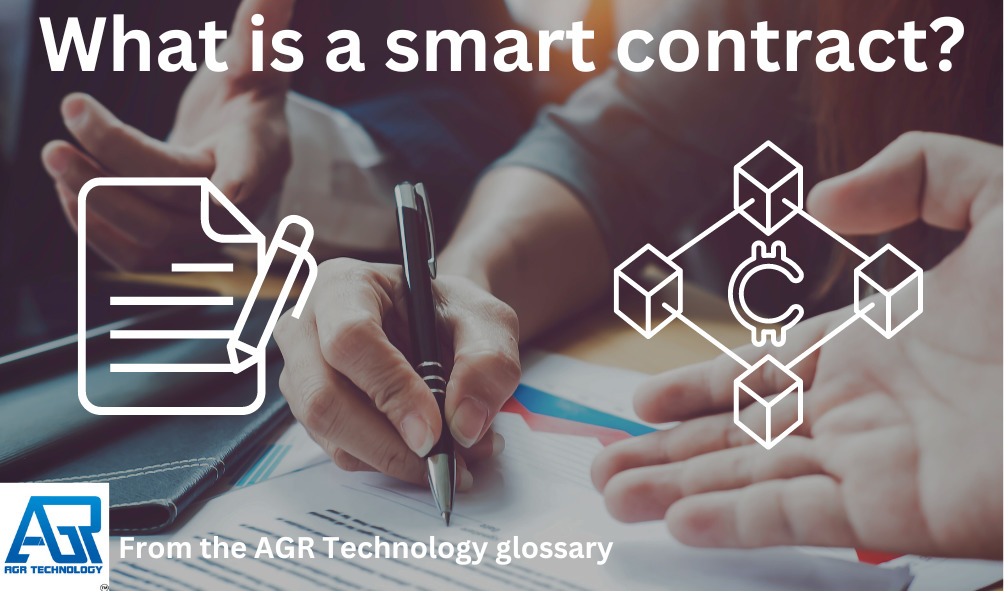Introduction

A smart contract is a computer program or transaction protocol that is designed to execute, control, or document events and activities in accordance with the conditions of a contract or agreement. The goals of smart contracts are to reduce the need for trusted intermediaries, arbitration fees, and fraud losses, as well as to reduce purposeful and unintentional exceptions. Smart contracts are frequently part of dApps and make up a large part of the DeFi and Blockchain ecosystem.
Smart contracts are frequently connected with cryptocurrencies, and Vitalik Buterin’s 2014 Ethereum white paper portrays the Bitcoin protocol as a poor version of the smart contract notion. Various cryptocurrencies have supported programming languages since Bitcoin, allowing for more complex smart contracts between parties.
Nick Szabo created the term “smart contracts” in the early 1990s, referring to “a set of promises, specified in digital form, including protocols within which the parties perform on these promises.”
The phrase was first used in 1998 to identify objects in the rights management service layer of The Stanford Infobus, which was part of the Stanford Digital Library Project.
A smart contract is not necessarily the same as a smart legal contract, which is a standard, natural-language, legally enforceable agreement with specified terms stated and implemented in machine-readable code.
How do smart contracts work?

Smart contracts are computer software that automatically implements and enforces the conditions of a two-party agreement. These agreements are kept on a blockchain, which is a decentralized digital ledger that securely and transparently records transactions. When certain circumstances, like a specified date or the fulfillment of certain responsibilities, are met, the smart contract executes the terms of the agreement automatically and without the need for human intervention.
The smart contract’s code is open to the public (open source) and cannot be changed once it is placed on the blockchain, resulting in an immutable and tamper-proof record of the agreement. By automating the implementation of agreements in a transparent manner, smart contracts have the potential to boost efficiency and save costs.
A simple way of thinking of these is “if this then that” statements whereby certain instructions are performed by a software program based on certain conditions. For example, if an electronic agreement is signed by both parties automatically transfer X amount of Ethereum to another wallet address.
With application developers and APIs more complex statements can be made allowing a whole host of potential use cases and functionality with smart contract applications.
Legal recognition and status

Smart contracts are not legally enforceable agreements, but rather a method of carrying out duties derived from agreements that can be carried out automatically by a computer program or a transaction protocol.
Scholars have suggested that whether programming languages are imperative or declarative has an impact on the legal legitimacy of smart contracts. Since the debut of the Ethereum blockchain in 2015, the phrase “smart contract” has been used to refer to the concept of general-purpose computation that takes place on a blockchain or distributed ledger.
A “smart contract” is defined as a “collection of code and data (sometimes referred to as functions and state) that is deployed using cryptographically signed transactions on the blockchain network” by the US National Institute of Standards and Technology. In this perspective, a smart contract is any type of computer program that is not necessarily tied to the traditional definition of a contract.
A smart contract is a securely stored procedure since its execution and defined effects (such as value transfer between parties) are tightly enforced and cannot be changed. Belarus became the first country to legalize smart contracts in 2017, and a US Senate report in 2018 stated that the concept is anchored in basic contract law.
Arizona, Nevada, Tennessee, and Wyoming are among the states that have approved legislation allowing the use of smart contracts. The UK Jurisdiction Taskforce (UKJT) established the Digital Dispute Resolution Rules (Digital DR Rules) in April 2021 to aid in the quick resolution of blockchain and crypto legal disputes in the United Kingdom.
A related video that further explains this:
Conclusion
We hope you found this page to be helpful, if so be sure to share it with anyone you think will find it interesting, be sure to also check out the links below for more crypto/blockchain-related content on our website and check out our business services and free software tools.
Related topics from our blog & glossary:
Some of the best Crypto exchanges that work in New Zealand
List of the top Crypto exchanges that work in Australia
Some of the best Cryptocurrency mobile apps for Hong Kong users
Best Cryptocurrency applications for Taiwan users
DAO (Decentralized Autonomous Organization)
What is a digital/smart wallet?
Different platforms that enable you to receive Cryptocurrency payments on your website
Cryptocurrency Mining Explained
Cryptocurrency Whitepapers Explained
Fintech (Financial technology)
List of some top CFD trading platforms for the UAE/Dubai market
What is Cryptocurrency Market Analysis?
What are Initial Exchange Offerings (IEOs)
Comparing different options and mobile apps for Singaporeans wanting to trade and buy Crypto
Comparing different loan platforms and companies for Australians SMBs
Mortgage affordability calculator
Top 10 Trading Platforms – Top 10 CFD Brokers: Australia
Top-rated Cryptocurrency exchanges & applications for India
Crypto exchanges for South Africans
Some of the top-rated Cryptocurrency exchanges & apps for Saudi Arabia
Some leading best small business loan/financing providers for Perth businesses
Top-rated Alternatives to Etoro for Australian CFD traders
Different commercial loan brokers for Melbourne businesses
Collection of some of the best day trading platforms for Australians
ICO Marketing Solutions to help brands capture more online reach
CMC Markets Alternatives for Australian end-users wanting to start trading
Coinspot alternatives platforms Australians wanting to get started with Cryptocurrencies
Services to help you recover lost Crypto from your devices
List of some top Etoro alternatives for Australian forex traders
What to look for when choosing a neobank app
Web3 Marketing Services By AGR Technology to help brands reach more users
Top Alternatives to Swyftx for Australian Crypto users
Some of the best Cryptocurrency exchanges/apps for Canadians
Sydney Business loans – lending for small to large businesses (summary)
Web3 Software Development Services By AGR Technology
NFT Digital Marketing Services By AGR Technology
Simple Guide Showing Australians how to buy Cryptocurrency
Earn interest on your Cryptocurrency assets
How to buy Bitcoin or other Cryptocurrency
Stock market trading software Australia
Citation(s):
(2006). Smart contract [Online]. Wikipedia. Available at: https://en.wikipedia.org/wiki/Smart_contract (Accessed: 21 April 2023).
Schammo, P. (2021, December 22). Law Commission’s Work on Smart Legal Contracts. Oxford Law Blogs. https://blogs.law.ox.ac.uk/business-law-blog/blog/2021/12/law-commissions-work-smart-legal-contracts
“Belarus is about to become a major crypto hub” 9 Mar. 2018, cobalt.legal/en/news-cases/belarus-is-about-to-become-a-major-crypto-hub. Accessed 21 Apr. 2023.
“What are smart contracts on blockchain? | IBM” www.ibm.com/au-en/topics/smart-contracts. Accessed 21 Apr. 2023.
Lucas Mearian, What’s a smart contract (and how does it work)?, Computerworld https://www.computerworld.com/article/3412140/whats-a-smart-contract-and-how-does-it-work.html.
![logo-new-23[1] logo-new-23[1]](https://agrtech.com.au/wp-content/uploads/elementor/thumbs/logo-new-231-qad2sqbr9f0wlvza81xod18hkirbk9apc0elfhpco4.png)